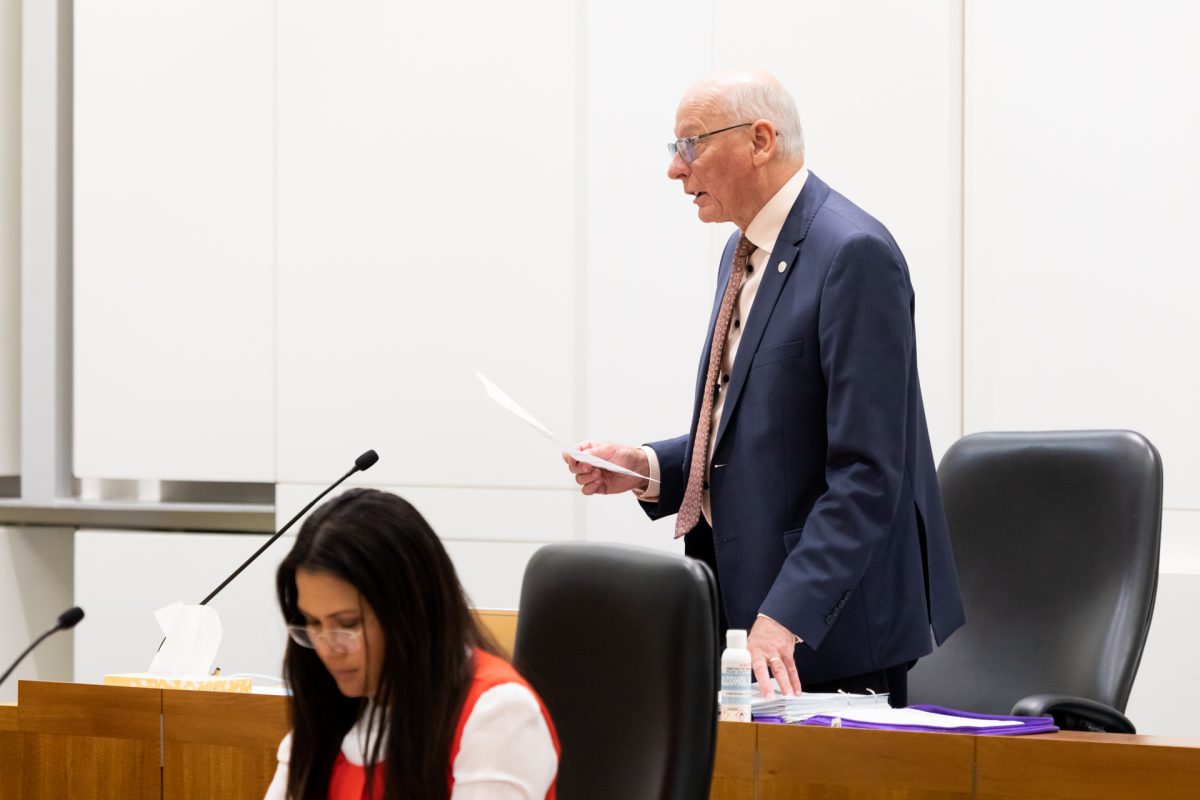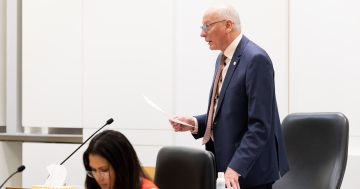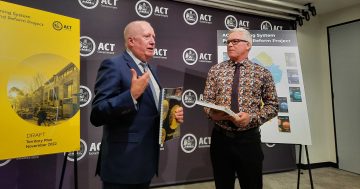
MLA Peter Cain says the new outcomes based planning system is at risk because governance is off the table. Photo: Michelle Kroll.
In late December, the Standing Committee on Planning, Transport and City Services (PTCS) handed down their final report into their Inquiry into Planning Bill 2022 with 49 recommendations.
The inquiry provided interested parties one final opportunity to let their thoughts on the Planning Bill be known to the ACT government. What we heard in the public hearings and saw in the final report largely reflected the same complaints and concerns that I had been hearing for the past year.
The ‘outcomes-focussed’ system promises to encourage innovation to prepare Canberra for the coming decades according to the government and industry. Yet some experienced planners and residents’ activists claimed the approach lacks the clarity and objectivity necessary for a good planning system.
The removal of pre-DA consultations was overwhelmingly regarded by community and environmental groups as detrimental to their capacity to express feedback on developments that will affect them. Meanwhile, industry leaders celebrated the Bill’s principles of good consultation, which replace pre-DA consultations, as less combative.
The proposed restriction on third-party appeal rights for merits review to ACT Civil and Administrative Tribunal (ACAT) was viewed as prohibitive by community councils and environmental advocates because judicial review in the Supreme Court is not feasible for many potential complainants. Nonetheless, industry and pro-development supporters considered it necessary to minimise the expensive and burdensome processes developers face under ACAT appeals.
It is unfortunate, but not entirely unexpected, that a number of the Bill’s provisions elicited confrontation between the community and industry. However, there was a theme that united community and industry groups alike: governance.
As confirmed by the Planning Minister during the public hearings, governance reform was explicitly left off the table from the purpose and objectives of the ACT Planning System Review and Reform Project at his behest.
This glaring omission has only reinforced feelings of distrust and discontent towards the ACT planning system. This sentiment is heavily reflected in a number of the recommendations regarding governance and administrative arrangements in the final report handed down by PTCS.
It is not unfair to be concerned, like me, that under an ‘outcomes-focussed’ approach, the key decision-makers would have the capacity to justify almost anything they wanted as fulfilling the objects of the Bill and planning principles.
Territory Priority Projects will expedite developments deemed worthy as declared by the Planning Minister and the Chief Minister by a mere notifiable instrument and significant doubts remain over the increased role of the Chief Planner in the Bill, who doubles as the Director-General of the EPSDD.
How can Canberrans have trust and confidence in the new system when it will seemingly be governed by a planning oligarchy?
The reality of these concerns was realised by PTCS in their final report, recommending that the declaration of Territory Priority Projects should be by disallowable instrument and that the current arrangement whereby the role of the Chief Planner and Director-General of the EPSDD are held by the same person be reviewed.
While Canberra will undoubtedly have to undergo change to face the challenges of the future, must this happen at the expense of our Bush Capital character, our Garden City aesthetic, our capacity to be properly consulted, and our ability to choose our lifestyles?
Increasingly, I suspect that the purpose of this Bill is not to better connect developers with the community or better protect sensitive ecological and heritage sites. Rather, its purpose is to make easier the passage of Mr Barr’s ruthless understanding of urban infill, come hell or high water or community objections. A sentiment reflected in the additional comments to the final report by Mark Parton, the Liberal member of PTCS and a former Shadow Planning Minister.
As demonstrated by the recurring opinions expressed at the public hearings before the PTCS Inquiry and in its final report, the people of Canberra are left wanting by this Bill. Our Bush Capital is better for its luscious gardens and expansive green spaces, its eclectic architecture, and tightknit communities.
Our planning system must protect these qualities and still be able to adapt to the future. It is my view that this Bill fails in achieving such a balance, fails in safeguarding our system’s integrity, and fails in recognising the wishes of the people of Canberra.
Peter Cain is a Liberal MLA for Ginninderra and the opposition spokesperson for planning and land management.




















